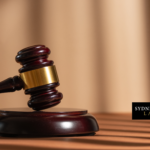NSW Magistrate’s Talk-Back Tirade Sparks Controversy

A New South Wales Magistrate has created a stir after expressing controversial views about crime and sentencing on talkback radio.
When he called into Robbie Buck’s breakfast programme on 702 ABC Sydney, the Magistrate identified himself as ‘Dave’, saying ‘I work in the criminal justice system’.
His voice was quickly identified by those in the know as David Degnan, a serving Magistrate with a reputation for being tough on sentence. Lawyers sometimes call Degnan “two trucks” because he sends so many people to prison that one truck is not enough to take them all away from court.
His call followed a segment on crime and sentencing, including Circle Sentencing, which aims to divert Indigenous offenders away from the criminal justice system by bringing them together with elders, police and others within the system to formulate a penalty.
Controversial comments
During the emotional rant, Degnan says:
“By the time people are sent to gaol they are nearly always recidivists… They’ve already been through the circle of sentencing or forum sentencing… they’ve had those options.”
“Gaol is always a last resort, so this idea that gaol don’t work, I’m sorry, they do …. because they lock people up that don’t get the message….”
“This thing about Aboriginal people in custody, they’re committing the offences”.
“That’s why they’re in custody. No-one’s trying to target the Aborigines. Each offender comes to the court and they’re dealt with individually.”
When questioned about whether rehabilitation programs could be more effective than prison, Degnan claims diversionary programs exist in every local court in NSW — a claim which lawyers have pointed-out is simply incorrect – programs and services are not available in all courts, especially in remote areas.
“For some people the programs are effective …. But some people just keep offending,” Mr Degnan says.
“Most of the people that do offend, they’ve been given bonds, they’ve been sent to different programs, they’ve had supervision, but they don’t seem to get the message. And then eventually, yes, they’ll end up in gaol.”
Criticism
It is reported that Degnan initially denied making the comments, later admitting it was him.
Many believe the outburst has reduced the Magistrate’s credibility, whilst creating a perception of bias, especially against Indigenous defendants.
He has also been criticised for assumimg defendants are almost always recidivists by the time they are sent to prison, and for failing to recognise the importance and success of preventative and diversionary programs in reducing reoffending – a failure which gives some insight into the Magistrate’s state of mind.
According to highly-respected retired District Court Judge John Nicholson SC,
“There may be some Aboriginal people who would be uncomfortable coming before a judicial officer who had expressed opinions in respect of Aborigines are therefore committing offences.
“He will have lost the opportunity to make an impact on the community in terms of balanced judicial decision making. I’m not suggesting he’s not doing that, but the problem is the people coming to his court may fear he won’t do that in their case.”
To Speak, or Not to Speak
Professor Matthew Groves, an expert on judicial fairness and bias, says the ‘Guide to Judicial Conduct’ strongly cautions against judicial officers speaking to the media.
“Talkback radio and the like as especially dangerous for judges,” he says.
“It is not that these things are not good for debate. The problem is that they are not the natural terrain of judges”.
Magistrates and Judges are therefore cautious about speaking off-the-cuff to the media, as comments can affect their perceived impartiality.
In today’s digital media environment, outbursts can quickly go viral, potentially reducing the public’s confidence in the judicial system.
On the other hand, some feel Magistrates and Judges should be encouraged to engage in structured public debate as they have a great deal of experience and knowledge of the system, and are in a position to correct misinformation disseminated by the media.
Public engagement can also help break down the perception that judicial members live in ‘ivory towers’ – with little understanding of real world issues – when in fact they have to deal with pressures and frustrations just like the rest of the community.
But perhaps such debate should occur in appropriate forums, rather than through calls to talk-back radio shows.






